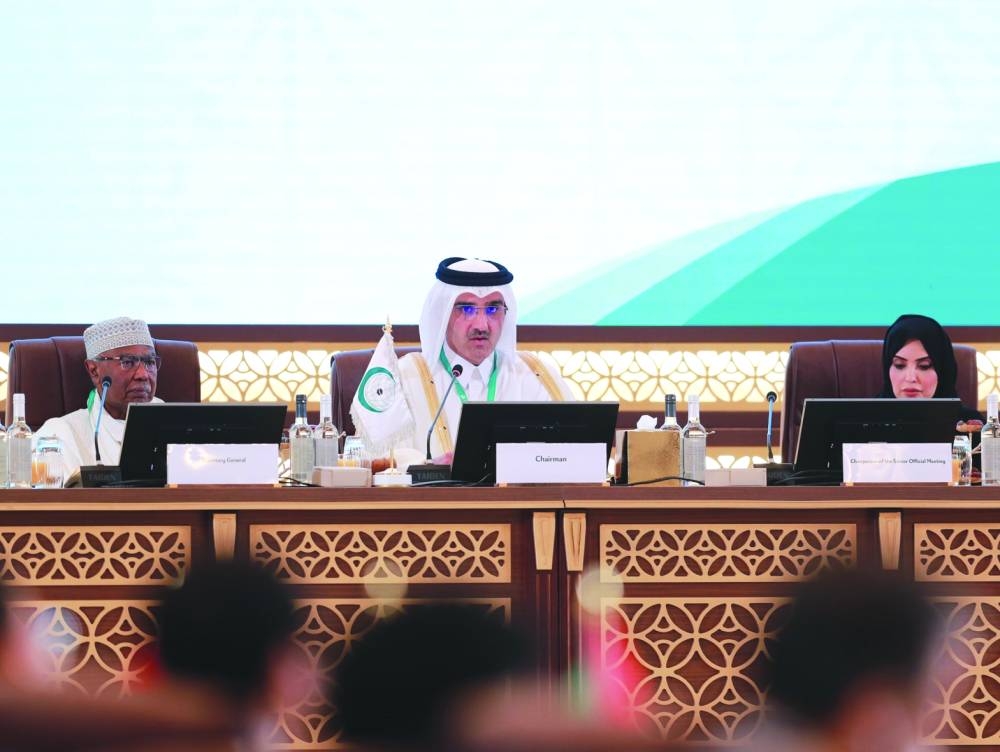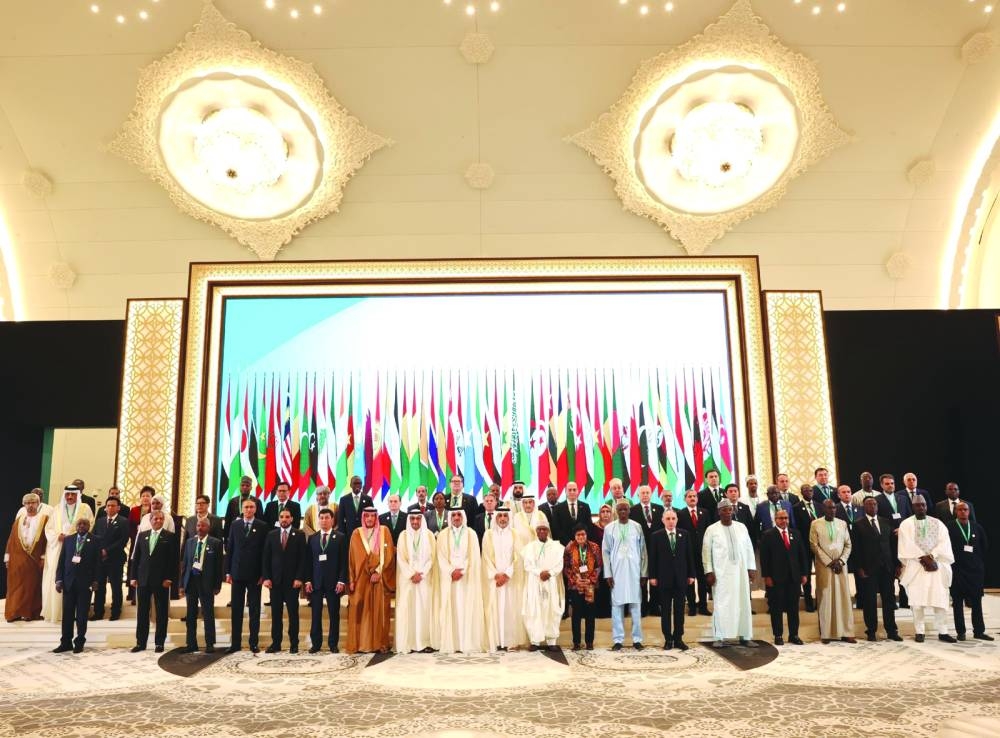Qatar chaired Wednesday the second ministerial meeting of anti-corruption law enforcement agencies in the member states of the Organisation of Islamic Co-operation (OIC), hosted by the Administrative Control and Transparency Authority (ACTA). It also signed the 'Makkah Al Mukarramah Convention' specialised in anti-corruption law enforcement within OIC member states.
In his opening address, HE the President of the Administrative Control and Transparency Authority (ACTA) Hamad bin Nasser al-Misnad emphasised the continued efforts to enhance co-operation and integration among OIC countries in combating corruption, which is a significant scourge and a real challenge to global security and peace, necessitating intensified efforts to develop effective strategies, programmes, and action plans to eradicate corruption in all its forms and achieve sustainable development.
He stressed the importance of recognising that combating corruption is not merely about slogans or religious texts, but rather a comprehensive system based on values of justice, honesty, integrity, and transparency. It is not only a duty but also a social and collective responsibility that requires everyone -- governments, institutions, and individuals -- to work together earnestly to achieve a society characterised by integrity and transparency, thereby highlighting and empowering the role of civil society in this field.
HE al-Misnad pointed out that the OIC countries have achieved many accomplishments in combating corruption, whether through enacting necessary legislation and strengthening legal frameworks or establishing strong and effective regulatory bodies. However, challenges remain, and everyone must continue to work on enhancing integrity systems, transparency, and developing monitoring and accountability mechanisms.
He reaffirmed Qatar's keen interest in international co-operation and a participatory approach in combating corruption, and its commitment to strengthening international partnerships by signing numerous memorandums of understanding with regional and international institutions and bodies concerned with combating corruption.
He indicated that following this participatory approach in preventing and combating corruption allows a comprehensive understanding of this destructive phenomenon, identifying its real causes, and encouraging all concerned parties to participate effectively in its fight. These initiatives reflect Qatar's firm commitment to enhancing international adherence, exchanging visions and ideas, and developing joint action plans that contribute to achieving a tangible model for international co-ordination and co-operation in eliminating all forms of corruption.
HE the ACTA president noted Qatar's emergence as a trusted partner in achieving the highest levels of integrity and enhancing effective governance, adding that following this participatory approach in many countries around the world comes thanks to His Highness the Amir Sheikh Tamim bin Hamad al-Thani's wise leadership, which paved the way for enhancing national efforts for integrity and transparency, taking clear and firm efforts based on solid foundations and strict legislation that contribute to achieving Qatar National Vision 2030, which aims to build an honest society that promotes opportunities for sustainable development.
He invited the delegates in this meeting to participate in the 11th session of the Conference of States Parties to the UN Convention against Corruption, which will be held in Doha from Dec 15 to 19, 2025. This event will gather representatives from all over the world and provides a unique opportunity, not only for Qatar but for all countries, to play a more active role in the international dialogue on combating corruption and exchanging best practices in this field.
For his part, OIC Secretary-General Hissein Brahim Taha said that the adoption of the Makkah Al Mukarramah Convention was guided by the principles and objectives contained in the OIC Charter, particularly the article that stipulates co-operation in combating terrorism in all its forms and manifestations, organised crime, illicit drug trafficking, corruption, money laundering, and human trafficking.
He stressed the need for a legal framework to facilitate co-operation between anti-corruption law enforcement authorities in the OIC member states more than ever before, and this agreement was drafted to address this urgent need. For his part, President of the Saudi Oversight and Anti-Corruption Authority (Nazaha) Mazin bin Ibrahim al- Kahmous praised Qatar's efforts and its initiative to host the ministerial meeting, noting that this meeting comes in the midst of ongoing tragic events in Palestine and Lebanon, which have resulted in thousands of martyrs, wounded and missing persons, most of whom are women and children.
He affirmed his country's commitment to joint Islamic action, as it hosted the International Coalition for a Two-State Solution initiative, in addition to a number of other ministerial meetings, at a time when the Ministerial Committee headed by Saudi Arabia is currently touring the world, in support of the rights of the Palestinian people.
Qatar
Qatar keen to enhance co-operation among OIC states in battling corruption
Qatar chairs 2nd ministerial meeting of OIC anti-corruption law enforcement agencies, signs 'Makkah Convention'


